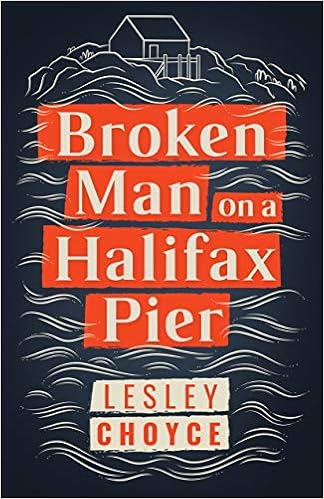I knew I’d like this novel from its title. I just had to play my Stan Rogers CDs as I
read.
Charles Howard, 55, has lost virtually everything, including his job
and savings, and is basically destitute with no prospects. One foggy morning in Halifax, he meets Ramona
Danforth, a retired actress with a generous trust fund. They end up taking a drive to Stewart Harbour
on Nova Scotia’s Eastern Shore, a fishing village to which Charles has not
returned since his high school graduation.
During this visit, Charles makes discoveries which complicate his
life.
In many ways this is a love story between two middle-aged people. Such a romance is inevitably more complex than
a relationship between young people because each partner comes with
baggage. What is not always clear is why
Charles and Ramona continue to stay together when very serious complications
arise. From the beginning they choose to
stay and support each other. Charles,
for instance, has always had commitment issues:
“It fit the story of my life. Get
involved. Make a commitment. Then walk away.” Ramona has also had difficulty committing to
another: “’Like I said, over and over, I
would get close to someone and then suddenly just walk away. It would always be that easy for me.’” We are to believe that these people fall in
love immediately and, despite their previous unwillingness to commit to another,
they are now commit to the other even when very serious complications arise?
There are some sections of the novel that are humourous. Rolf, who lives in a fishing shack next to
the one Charles has inherited from his father, is the source of much of the
humour. The snappy banter between
Charles and Ramona when they first meet also adds a light-hearted tone.
I like books where the protagonist is dynamic. That is definitely the case with
Charles. He sees himself as a “work in
progress, a project undergoing repair.” He
learns about himself: “I had cultivated
a powerful ability to shut off my emotions.
A handy trick, I suppose, but I wondered now at what cost.” He also realizes that “there was no such
thing as a life without consequences.
Every little thing – or big thing – you do in life sends out ripples in
the pond that keep getting wider and wider.”
Ramona is also dynamic; she learns to forgive.
For me, the setting of the novel is part of its charm. I’ve visited Nova Scotia several times and it
remains one of my favourite places in Canada.
It is obvious that the author is very familiar with the province. His descriptions left me tasting the salt of
the Atlantic.
The novel is very easy to read because of the writing style. Though the book touches on some serious
topics, it never bogs down. Some events
just seem inevitable; Brody’s story, for example, ends in the only way it
could.
I’ve learned that Lesley Choyce has written over 90 books. Why have I not read him before? I will certainly be checking out some of his other
fiction.
Note: I received a digital galley of this book from the publisher via NetGalley.

No comments:
Post a Comment